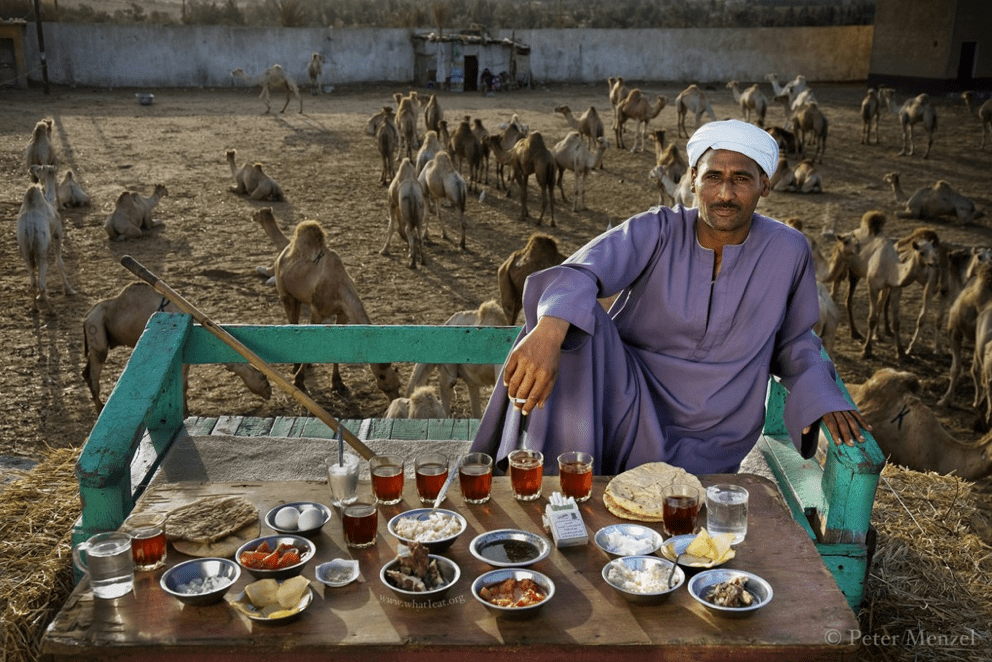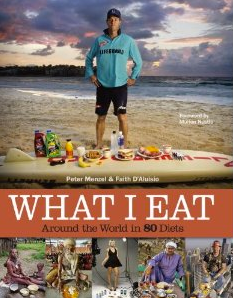 In 2009, photographers Peter Menzel and Faith D’Alusio’s presented Hungry Planet — a grounding portrait of what the world eats, from the $376.45 an Australian family spends on food per week to the $1.23 weekly budget of a same-sized family in Chad’s poorest refugee camp. Now comes their follow-up, What I Eat: Around the World in 80 Diets (public library) — a fascinating project telling the global story of our relationship with sustenance and pleasure through portraits of 80 people from 30 countries and the food they eat in one day.
In 2009, photographers Peter Menzel and Faith D’Alusio’s presented Hungry Planet — a grounding portrait of what the world eats, from the $376.45 an Australian family spends on food per week to the $1.23 weekly budget of a same-sized family in Chad’s poorest refugee camp. Now comes their follow-up, What I Eat: Around the World in 80 Diets (public library) — a fascinating project telling the global story of our relationship with sustenance and pleasure through portraits of 80 people from 30 countries and the food they eat in one day.
Menzel tells NPR:
I want people to understand their own diets better — and their own chemistry and their own biology. And make better decisions for themselves.
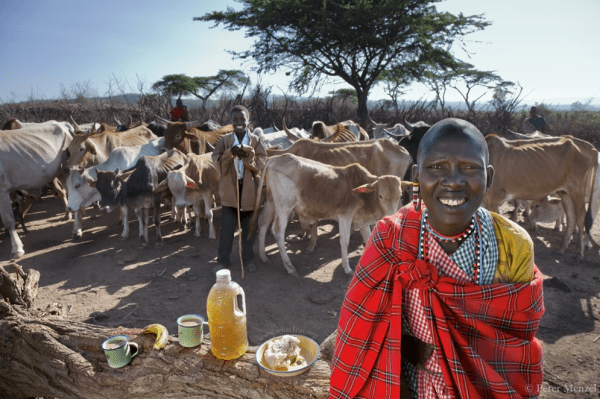
Image copyright Peter Menzel, menzelphoto.com
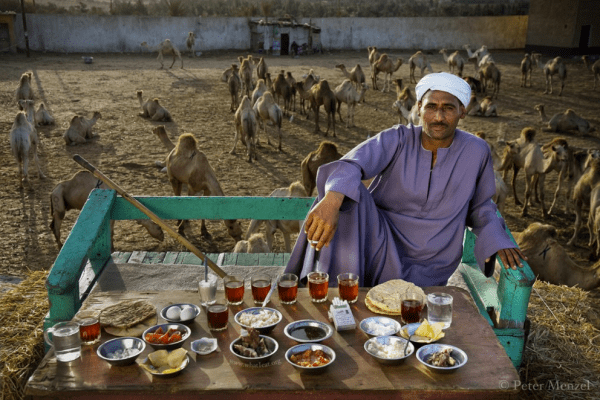
Image copyright Peter Menzel, menzelphoto.com
From a Japanese sumo wrestler to an American competitive eater to a Massai herdswoman, the book offers an exploration of demography through photography, contextualized by compelling essays from some of today’s leading food activists and thinkers, including indispensible voices on the issue like Brain Pickings favorite Michael Pollan.
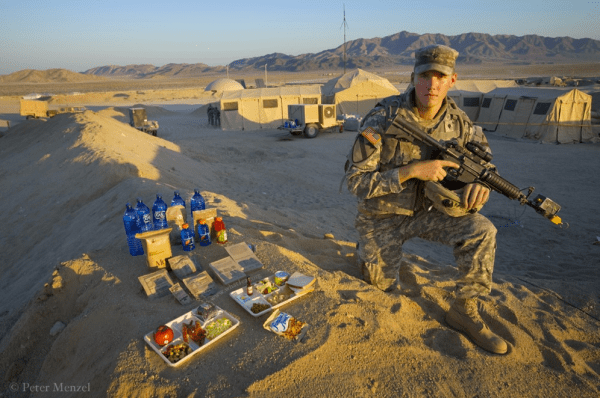
Image copyright Peter Menzel, menzelphoto.com

Image copyright Peter Menzel, menzelphoto.com
Alongside each of Menzel’s photographs, text by D’Alusio outlines the specifics of the daily diet depicted and places it in a cultural context that explains why, for instance, a Brazilian fisherman of average build can consume 5,200 calories per day and an American truck driver who consumes a comparable amount is clinically obese. Ultimately, the project aims to illuminate the relationship between food and where we are, in life and in the world.

Image copyright Peter Menzel, menzelphoto.com
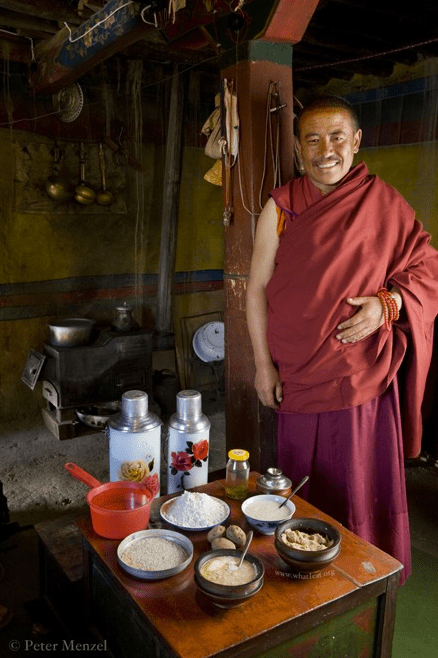
Image copyright Peter Menzel, menzelphoto.com
Part Food, Inc., part FridgeWatcher, the project is a potent antidote to Neil Burgess’s recent rant about the death of photojournalism — What I Eat: Around the World in 80 Diets is a bundle of storytelling and humanity that unravels itself before your eyes, leaving you hungry to better understand the correlation between food, environment and quality of life.


